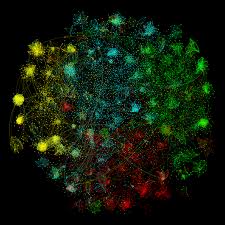Xerox Printers as a Research Tool
March 31, 2017
The Digital Research Team are currently supporting researchers in the digitisation of paper-based research data. Dr Christian Karner in the School of Sociology and Social Policy has gathered around 5000 newspaper clippings over the last 10-15 years as a part of his research. While he knows the data very well, it can be slow to …
Introducing Handwriting Technologies
March 30, 2017
The Digital Research Team are currently running an initiative to explore the digitisation of paper-based research data. Having done some ethnographic work myself, I am all too aware of the amount of paper based research data that can be generated, with many full physical note books in a matter of days. We all know the …
Digitising Paper Based Research Data: Digital Research Initiative 1 2017
As a Digital Research Specialist, researchers often say to me: “What do I need technology for?” This comes as no surprise since many types of research do not immediately lend themselves to digital technology. For instance Ethnography, the systematic study of people and cultures, is typically achieved through just using pen and paper. In fact, …
Horizon scanning for digital engagement technologies in Politics and Law
March 28, 2017
The digital research team are working with Politics, Law and Computer Science on a provocative digital engagement in research on corruption. During the latest meeting we were discussing the possibilities of using a serious virtual reality game to explore trust issues in the workspace. Some creative ideas we had involved having the user virtually work …
Digital Engagement in Politics and Law: Digital Research Case Study 13 2017
Researchers in the Schools of Law and Politics often work in sensitive and challenging research areas which are difficult to engage research participants and members of the public in. You may have come across my blog series on Digital Engagement, which inspired a new digital engagement project. Jan Meyer-Sahling, Professor of Political Science and Richard …
Classifying and verifying fake news in social media
March 27, 2017
Helen Creswick, Christian Karner and Martin Flintham are currently working on an interdisciplinary research project looking at fake news in social media. A literature review is currently underway and two key taxonomy’s have emerged around types of fake news and categories of verification. Rubin et al (2017) argue that there are three types of ‘fake’ …
Digital Sociology: Digital Research Case Study 3 2017
The School of Sociology and Social Policy is home to many researchers who could benefit from the use of digital technologies, but miss out on these opportunities due to a perceived lack of relevance. As a first step toward challenging this perception, the digital research team have facilitated an interdisciplinary collaboration between Christian Karner, Associate …
Digital Engagement (6): Envisioning the Future
March 17, 2017
As researchers it can be all too easy to forget how difficult research can be for members of the public to understand and apply. Often researchers have a clear vision of what the future of their discipline might look like, but it can be so far at the cutting edge that it has no point of …
Digital Research: Case Studies Blog Series
March 15, 2017
The Digital Research Environment Strategy Group has been reflecting on whether the University of Nottingham’s Digital Research Environment provides the level of support needed to match the ambition of our research strategy. By providing a leading Digital Research Environment we aim to make Nottingham a destination for forward thinking researchers who are enabled to answer …
Digital Engagement (5): The Crowd and their Knowledge
March 10, 2017
The Crowd encompasses a range of different people with a wealth of experience, and this pool of experts are an untapped source of knowledge. Digital platforms can give them a voice and opportunity to share their ideas and solutions to complex problems. In fact, even the opinions across the entire crowd can be captured with feedback and …











